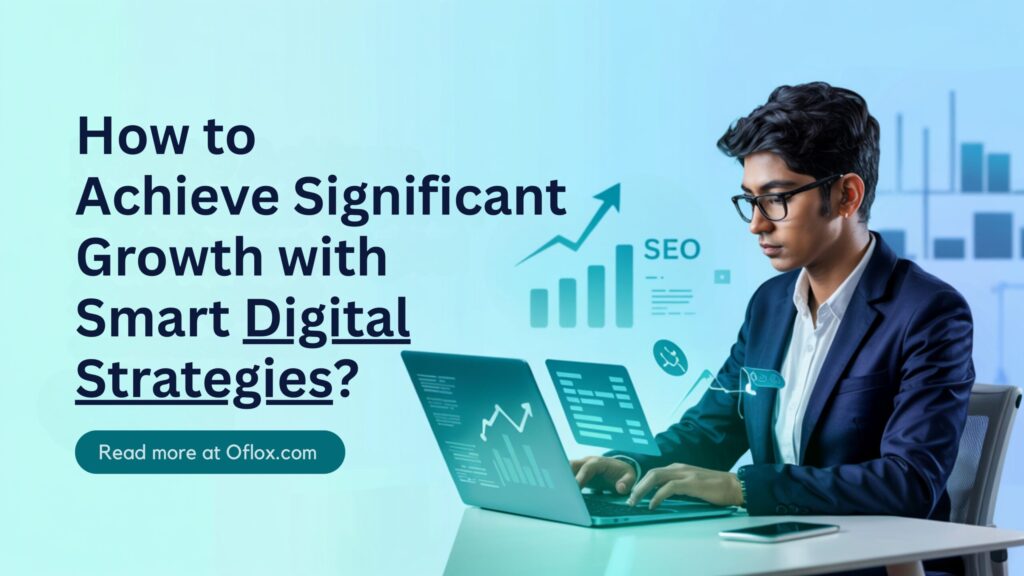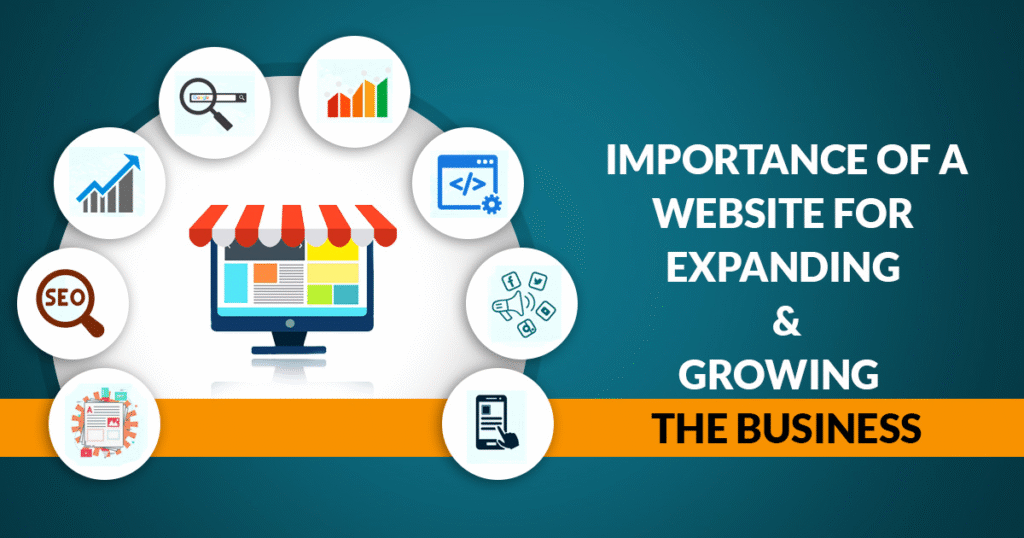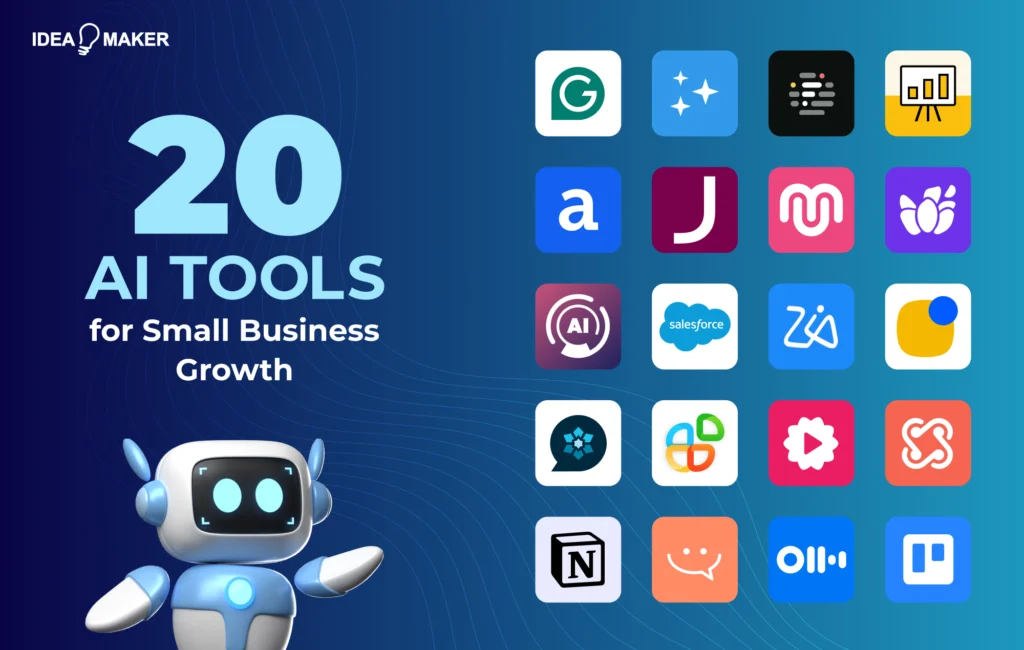Learn how to grow my business in 2025 with smart digital strategies, AI tools, and proven marketing methods for long-term success
Building a Strong Online Presence
The first step to growing my business is establishing a solid online identity. A professional website, social media activity, and SEO optimization help attract potential customers. When people can easily find my business on search engines, it builds trust and credibility. High-quality content and consistent updates make a brand stand out from competitors.
Digital marketing plays a vital role in promoting my business. Through search engine optimization, social media marketing, and email campaigns, business owners can reach wider audiences. Using analytics tools helps track what works and where improvements are needed.
Smart Strategies for Growth
Technology and innovation have reshaped how we manage my business. Tools powered by artificial intelligence assist in customer service, sales forecasting, and content creation. Automating small tasks saves time and improves accuracy. Focusing on customer satisfaction and personalizing services helps keep clients loyal.

To scale my business, focus on collaboration and continuous improvement. Learning about new market trends, investing in branding, and maintaining an active digital presence ensure long-term success. In 2025 and beyond, flexibility and innovation will determine how far my business can go.
How to Grow My Business with Effective Digital Strategies
Running my business in today’s competitive world is not just about offering great products or services; it’s about building an identity, reaching the right audience, and staying adaptable to change. Whether you’re a startup owner or an established entrepreneur, understanding how to strengthen my business through digital tools, marketing, and customer engagement is the foundation of long-term success.
1. Laying the Foundation for Growth
Every business journey starts with a clear plan. For my business to grow, it’s important to understand what makes it unique and how it solves customer problems. This includes defining a strong mission statement, setting achievable goals, and researching the market thoroughly.
A well-structured business plan acts as a roadmap, guiding decisions about finances, marketing, and operations. It helps identify what resources are required and how to allocate them efficiently. When my business operates with clarity and purpose, it’s easier to attract investors, employees, and customers who believe in the same vision.
2. Building a Digital Presence
The online space is the heartbeat of modern entrepreneurship. A professional website, social media visibility, and regular online activity establish credibility. Consumers today search, compare, and decide online before they make any purchase — which is why digital presence is essential for my business.
Your website should represent your brand’s identity — simple, responsive, and informative. Incorporate SEO strategies to ensure your site ranks well on Google and reaches your target audience. Blog posts, guides, and videos add value and help potential clients learn more about what your business offers.
Social media marketing further boosts awareness. Platforms like Instagram, Facebook, and LinkedIn can highlight products, achievements, and customer feedback — keeping my business in the spotlight.
3. Leveraging AI and Automation
Automation is transforming how businesses operate. Using tools powered by artificial intelligence helps save time, reduce manual effort, and improve decision-making. For example, AI chatbots handle customer support efficiently, while automated email systems nurture leads and build long-term relationships.
Data analytics also allows my business to make smart choices. By studying consumer behavior, preferences, and market patterns, you can tailor services to match demand. AI-based marketing and predictive analytics ensure your strategy remains proactive rather than reactive.
4. Understanding Customer Behavior
In the digital age, customer experience is everything. Listening to feedback and acting on it builds loyalty and credibility. Surveys, reviews, and analytics help identify what customers appreciate and what needs improvement.
For my business to thrive, focusing on personalized engagement is essential. Sending custom offers, recommendations, or thank-you notes can make customers feel valued. Happy customers become repeat buyers — and more importantly, advocates who bring in new clients through word of mouth.
5. Creating Value Through Content
High-quality content remains one of the most powerful marketing assets. Writing blogs, case studies, and tutorials related to your niche helps establish authority and trust. When content answers questions and solves problems, it attracts organic traffic and positions my business as an expert in the field.
Content marketing should be consistent and well-researched. Use storytelling to connect emotionally with readers, and integrate visuals like infographics or short videos to enhance engagement. Educational and problem-solving content ensures your audience keeps returning for more.
6. Managing Finances and Growth
Financial management plays a central role in sustainability. Tracking expenses, forecasting sales, and planning budgets carefully prevent financial stress. Modern accounting tools simplify bookkeeping and help monitor cash flow efficiently.
Reinvesting profits into technology, marketing, and employee training creates long-term stability. Regular financial analysis helps my business identify potential risks and explore new opportunities. A strong financial foundation ensures your operations run smoothly even during challenging times.
7. Building Strong Relationships and Networks
Networking remains a timeless strategy for business success. Partnering with other companies, joining industry events, and engaging with professionals opens doors to new collaborations. Building trust-based relationships expands visibility and credibility for my business.
Mentorship also plays a crucial role. Learning from experienced entrepreneurs provides valuable insights and helps avoid costly mistakes. A solid network is not just a source of support — it’s a catalyst for innovation and growth.
8. Adapting to Future Trends
The digital world changes fast, and flexibility is key. Keeping up with emerging technologies, new marketing trends, and changing customer expectations ensures your strategy remains effective. Sustainability, automation, and data security are becoming major priorities for modern businesses.
Innovation should be an ongoing process. Testing new tools, experimenting with fresh ideas, and staying curious about evolving trends keeps my business future-ready
Why Having a Website Is Crucial for My Business
Your website is your digital storefront. It’s often the first impression customers get of my business, and it plays a vital role in converting visitors into loyal customers. A professional website reflects credibility, provides information about your products or services, and creates an opportunity to build strong relationships with your audience.

A well-designed website should load quickly, be mobile-friendly, and have a clean structure that allows visitors to find what they’re looking for easily. It’s also important to ensure your website follows SEO best practices to rank higher on Google searches. For example, at Tool Trends AI, you can explore AI tools and strategies that can help businesses streamline content creation, keyword research, and performance tracking.
Adding valuable content such as blog posts, FAQs, and customer testimonials also helps build trust. When users see that my business provides helpful and authentic information, they are more likely to engage and make a purchase.
1. Leveraging Social Media Platforms
Social media has become one of the most powerful tools for promoting my business online. Platforms like Instagram, Facebook, LinkedIn, and X (formerly Twitter) allow you to showcase your products, share behind-the-scenes content, and engage directly with your audience.
Each platform serves a unique purpose.
- Instagram is great for visual storytelling and showcasing lifestyle products.
- LinkedIn works well for B2B networking and thought leadership.
- Facebook helps build communities and run targeted ads to reach potential customers.
Consistency is key—post regularly, use high-quality visuals, and reply to comments and messages. When people interact with your content, algorithms push your posts to a larger audience, increasing visibility for my business.
You can also collaborate with influencers or run small ad campaigns to promote new products or services. The more active and responsive you are, the stronger your online presence becomes.
2. The Role of SEO in Growing My Business
Search Engine Optimization (SEO) is the backbone of digital visibility. It ensures that my business appears in search results when potential customers look for services or products like yours.
There are three main types of SEO to focus on:
- On-page SEO — optimizing titles, meta descriptions, and content with relevant keywords.
- Off-page SEO — building backlinks, guest posts, and social mentions to boost authority.
- Technical SEO — improving site speed, fixing broken links, and ensuring mobile compatibility.
By applying these strategies, my business can attract organic traffic without relying heavily on paid ads. SEO also builds long-term credibility since ranking higher on search engines increases trust among users.
If you want to explore tools that can simplify SEO, AI-driven solutions like those featured on Tool Trends AI can help with keyword tracking, performance analytics, and competitor research.
3. Content Marketing: Telling the Story of My Business
High-quality content is what keeps your audience coming back. Whether through blogs, videos, or newsletters, storytelling allows my business to connect emotionally with potential customers.
Focus on solving real problems, offering advice, or sharing industry insights. This not only helps with SEO but also builds your brand’s reputation. Educational and engaging content also positions my business as an expert in its niche, increasing the likelihood of conversions.
Adding a blog section to your site—like the one at Tool Trends AI—can significantly enhance visibility. Each new article gives Google fresh content to index, boosting your ranking and bringing new visitors to your site.
4. Monitoring and Improving Your Online Reputation
Maintaining a good reputation online is as important as building it. Regularly monitor reviews, social mentions, and feedback to ensure my business maintains a positive image. Respond to negative reviews professionally and use them as an opportunity to improve.
Customer satisfaction drives organic marketing—happy clients naturally share their experiences, which brings more people to your brand. Set up Google Alerts or use social listening tools to track what people say about your brand online.
Transparency and honesty go a long way in building trust. When audiences see that my business values their opinions, they develop loyalty and confidence in your brand.
5. Staying Ahead with Analytics and AI Tools
To keep improving, track your progress using analytics tools. Platforms like Google Analytics, Ahrefs, and SEMrush help you understand which pages or posts perform best, where traffic comes from, and what users are looking for.
Artificial Intelligence tools can further enhance this process. With AI-based insights, my business can identify emerging trends, personalize customer interactions, and automate marketing efforts for better efficiency.
Many of these tools can be explored at Tool Trends AI, where you’ll find resources designed to make business operations smarter, faster, and more effective.
Using AI Tools to Boost My Business
In today’s digital age, artificial intelligence (AI) has become one of the most transformative forces shaping how companies operate, market, and grow. For entrepreneurs and organizations, leveraging AI tools is no longer optional—it’s essential for staying competitive. Whether you’re running a startup or managing a large organization, using AI tools can streamline operations, improve decision-making, and help my business reach new levels of efficiency and innovation.

1. Understanding AI and Its Role in Modern Business
Artificial Intelligence refers to the ability of machines to simulate human intelligence. It includes learning, problem-solving, natural language processing, and automation. The term “AI” covers a wide range of technologies that analyze data, recognize patterns, and make predictions.
AI has rapidly evolved from being a futuristic concept to a practical business necessity. According to Wikipedia, AI involves systems that can perform tasks that typically require human intelligence, such as speech recognition, decision-making, and translation between languages.
For my business, understanding how these technologies work provides a foundation for adopting tools that reduce costs, increase output, and enhance customer experiences.
2. How AI Tools Are Transforming My Business Operations
AI tools are transforming daily operations across every industry. From automating customer service to predicting sales trends, these tools help optimize workflow and reduce human error.
For my business, AI integration means more than just adopting new software—it’s about redesigning the entire business model for the future. Tools like ChatGPT, Jasper AI, and HubSpot AI help generate content, handle customer queries, and manage marketing automation without manual effort.
- Automation and Efficiency: AI handles repetitive tasks like scheduling, email sorting, and data entry. This allows my business to focus on innovation and strategy instead of administrative work.
- Predictive Analytics: Tools like Google AI and IBM Watson analyze customer behavior, allowing my business to anticipate demand and adjust strategies accordingly.
- Cost Reduction: AI-driven automation cuts down labor costs and operational inefficiencies, improving profit margins.
By implementing AI tools, my business can become smarter, faster, and more adaptive to change.
3. AI Tools for Marketing and Sales
Marketing is one of the biggest beneficiaries of AI innovation. Modern tools can analyze customer data, optimize ad campaigns, and even write engaging copy. For my business, these tools make marketing campaigns more targeted and cost-effective.
a. Content Creation Tools:
Platforms like Copy.ai, Writesonic, and Jasper allow my business to generate blog posts, social media captions, and product descriptions instantly. These AI tools not only save time but also ensure consistent tone and style.
b. Customer Relationship Management (CRM):
AI-powered CRMs such as Salesforce Einstein and HubSpot AI automatically analyze leads, predict conversions, and suggest next steps. This ensures that my business never misses an opportunity to engage potential customers.
c. Ad Optimization and Social Media Management:
Tools like Adzooma and Buffer AI help my business monitor campaign performance and automatically adjust budgets for maximum ROI. AI also identifies the best posting times to maximize engagement.
4. Using AI Tools to Grow My Business Faster
One of the biggest advantages of AI is scalability. AI tools allow my business to grow without a proportional increase in manpower or costs.
Here’s how AI supports faster growth:
- Smart Decision-Making: AI uses data analysis to identify trends and recommend strategies that work. Instead of guessing, my business makes data-driven choices.
- Personalized Customer Experiences: With AI chatbots and recommendation systems, my business can deliver personalized shopping experiences that increase satisfaction and loyalty.
- Enhanced Productivity: AI automates complex workflows, enabling employees to focus on high-value activities.
For example, ChatGPT or Jasper AI can assist in creating proposals, blog posts, or emails within minutes—tasks that would otherwise take hours. This level of efficiency allows my business to compete with larger corporations using minimal resources.
5. AI Tools for Customer Service and Support
Customer support has changed dramatically with the introduction of AI-powered chatbots and virtual assistants. These tools are available 24/7, providing instant responses and improving overall customer satisfaction.
For my business, AI chatbots can:
- Handle frequently asked questions automatically.
- Redirect complex issues to the right departments.
- Gather data from customer interactions to improve future communication.
Examples include Zendesk AI, Intercom AI, and Drift—all of which enable my business to maintain a consistent and helpful communication flow with customers.
6. AI in Data Analytics and Decision-Making
Data is the heart of every successful company, and AI is the key to unlocking its true value. Traditional data analysis takes time and often misses hidden patterns, but AI-powered tools identify insights faster and more accurately.
Tools such as Tableau AI, Power BI, and Google Analytics 4 allow my business to:
- Track performance across marketing channels.
- Predict sales based on historical data.
- Identify areas that need improvement.
With these insights, my business can make informed decisions that boost performance and efficiency.
7. AI Tools for Financial Management
Managing finances efficiently is crucial for sustainability. AI-driven accounting and budgeting tools help my business automate invoicing, expense tracking, and fraud detection.
QuickBooks AI and Xero AI offer predictive insights into cash flow, while Zoho Books AI can categorize transactions automatically. These tools make financial management easier and more transparent.
In addition, AI algorithms can forecast revenue trends, helping my business prepare for future challenges and opportunities.
8. AI for Human Resources and Recruitment
Recruiting and managing talent is another area where AI tools are making an impact. Platforms like HireVue, Pymetrics, and Workable AI use data-driven methods to evaluate candidates and predict job performance.
For my business, these tools save time and ensure fair, unbiased hiring decisions. AI also helps with employee onboarding, training, and engagement tracking—making HR processes smoother and more efficient.
9. Ethical Use of AI in My Business
While AI offers tremendous potential, responsible use is equally important. My business must ensure transparency, fairness, and privacy when using AI tools.
AI systems can sometimes produce biased outcomes if trained on unbalanced data. Therefore, it’s essential to monitor AI outputs regularly and implement ethical guidelines. As Wikipedia explains, ethical AI ensures that technology benefits humanity while minimizing harm.
By adopting ethical principles, my business can build trust with customers and stakeholders while promoting long-term success.
10. The Future of AI and My Business
The future of AI is bright and full of opportunities. As technology evolves, more advanced tools will emerge to help my business grow intelligently.
Emerging trends include:
- AI + Augmented Reality (AR): Combining AI with AR will enhance e-commerce and product visualization.
- Voice AI: Smart assistants will continue to shape how users interact with brands.
- AI-Powered Personalization: Every user will experience tailored recommendations, making my business more customer-centric.
By staying updated with AI trends and continuously integrating new technologies, my business can remain ahead of competitors and maintain sustainable growth.